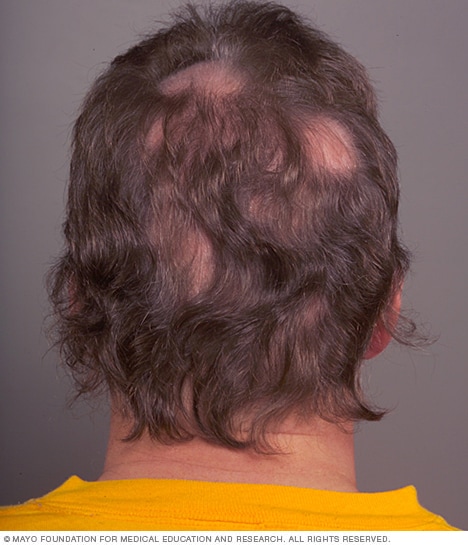Hi Susan,
I hope that this note finds you doing well and enjoying the holidays!
I bought a wig from you over the summer, and have been wearing it for all professional and social occasions for about the last 6 weeks.
I’m still learning, but it’s starting to feel more normal. It surely feels like the best of my options for now.
Many of my close friends have complimented my great new hair cut and say that they love the look with “more bangs.” We’ve had some good laughs when I quietly tell them that it’s “hair you wear” and they can’t believe it at first. Those moments have been great therapy!
Best of all, I’m starting to feel like myself again, in that I’m looking forward to going out and having fun living my life, as I always have.
Thanks for taking such good care of me back in July!
Wishing you and yours a Merry Christmas and a happy and healthy New Year,

We are now "Susan At Antonino Salon" specializing in Human Hair, Human Hair/Synthetic Blend and Synthetic wigs. I am an Oncology Nurse and Breast Cancer Survivor offering products for women undergoing Chemotherapy and Radiation Treatment since 1994. “The Fit of Custom Made. The Value of Custom Tailored.” CALL or TEXT 248-544-4287 for your FREE consultation on Monday and Tuesday from 10 AM to 4 PM. We are located within Antonino Salon, 191 Townsend, Birmingham, MI 48009.
Wednesday, December 19, 2018
Client provided recommendation. Note: All of our clients privacy is respected.
Wednesday, December 12, 2018
Unlikely drug pair combine to cut off cancer's energy supply

An electron microscopy image of a cancer cell produced at the University of Basel(Credit:University of Basel, Swiss Nanoscience Institute/Biozentrum)
Cancer cells are a hungry bunch, calling on relatively huge amounts of energy to feed their demanding metabolisms. There's a particular molecule that is pivotal to this process, converting nutrients into fuel to power the cells' rapid growth. New research out of the University of Basel describes a drug cocktail that has the effect of putting this out of action, leading the cancer cells to wither and die instead.
Molecular scientists at the University of Basel actually discovered two years ago that a commonly used diabetes drug could be combined with a 50-year-old hypertension medication to inhibit tumor growth. Named metformin and syrosingopine, respectively, the scientists knew beforehand that the former had some anti-cancer properties, but only by mixing it with the latter did it seem to have any meaningful effect.
They have now carried out follow-up experiments in mice to better understand how this process slows cancer growth, and it centers on a molecule called NAD+ that is central to converting nutrients into energy. NAD+ is produced through two cellular pathways, one of which metformin was known to block. The other, it has now been found, can be shut down by syrosingopine's ability to cause bottlenecks in some very key areas.
ADVERTISING
"In order to keep the energy-generating machinery running, NAD+ must be continuously generated from NADH," explains Don Benjamin, first author of the study. "Interestingly, both metformin and syrosingopine prevent the regeneration of NAD+, but in two different ways."
The metabolism of many cancer cells relies on a process called glycolysis, where they produce energy by breaking glucose down into lactate. But if enough lactate builds up it causes blockages in this pathway, something the cancer cells respond to by expelling them through special transporters. Syrosingopine's anti-cancer effects, as it turns out, are due to an ability to put these transporters out of action.
"We have now discovered that syrosingopine efficiently blocks the two most important lactate transporters and thus, inhibits lactate export," says Benjamin. "High intracellular lactate concentrations, in turn, prevent NADH from being recycled into NAD+."
The scientists found that the backlogs of lactate caused by syrosingopine, when combined with metformin, completely shut off the cells ability to produce NAD+. And depleted stocks of NAD+ mean insufficient energy levels, which in turn means cellular death.
They describe this as an important discovery, because currently there are no drugs available that block those lactate-transporting pathways of the cancer cells. These newfound abilities could lead to new cancer therapies that swiftly kill off deadly cells, and as the scientists note, a second career for a drug that was developed in the 1950s for another purpose entirely.
The study has been published in the journal Cell Reports.
Wednesday, December 5, 2018
Experience the Susan’s Special Needs exclusive difference.
We are like no other wig shop… For fashion, chemotherapy or alopecia.
Our wigs are custom tailored for a stylish and comfortable fit.
You may choose from our wonderful selection of over
700 human hair and synthetic wigs. Contemporary wig
designers from around the globe provide a new and
wonderful array of both human hair and synthetic wigs.
It’s all about choices to help you find the style and texture
that is right for you and your lifestyle. We work with a wide variety
of wig designers and manufacturers providing human hair and
synthetic wigs and headbands in all price ranges. Our wigs are
made in several modes of construction that are selected in density,
fiber content, style and color. We find that the lightweight wigs with
a natural skin top are most popular as they resemble and look like a
natural scalp. Our experienced stylists will review your treatment cycle
and talk about the hair loss process to assist you in mapping out
your plan of action. This plan may include a human hair or synthetic wig,
sleep cap, perhaps other headwear for casual wear, and products for your
scalp and skin. We will also talk about your personal choices and timing for
your custom tailoring of your wig.
We will guide and assist you in making all these decisions.
Our store is open 10 - 4 Tuesday - Friday and 10-2 Saturday
for your convenience. Give us a call (248-544-4287 or just stop by.
Appointments are recommended.
Our stylists also offer wig washing and styling services for a small fee. Please call us to discuss how we can serve you.
HAIR LOSS - MAYO CLINIC
Hair loss can affect just your scalp or your entire body. It can be the result of heredity, hormonal changes, medical conditions or medications. Anyone can experience hair loss, but it's more common in men.
Baldness typically refers to excessive hair loss from your scalp. Hereditary hair loss with age is the most common cause of baldness. Some people prefer to let their hair loss run its course untreated and unhidden. Others may cover it up with hairstyles, makeup, hats or scarves. And still others choose one of the treatments available to prevent further hair loss and to restore growth.
Before pursuing hair loss treatment, talk with your doctor about the cause of your hair loss and treatment options.
Symptoms
Hair loss can appear in many different ways, depending on what's causing it. It can come on suddenly or gradually and affect just your scalp or your whole body. Some types of hair loss are temporary, and others are permanent.
Signs and symptoms of hair loss may include:
- Gradual thinning on top of head. This is the most common type of hair loss, affecting both men and women as they age. In men, hair often begins to recede from the forehead in a line that resembles the letter M. Women typically retain the hairline on the forehead but have a broadening of the part in their hair.
- Circular or patchy bald spots. Some people experience smooth, coin-sized bald spots. This type of hair loss usually affects just the scalp, but it sometimes also occurs in beards or eyebrows. In some cases, your skin may become itchy or painful before the hair falls out.
- Sudden loosening of hair. A physical or emotional shock can cause hair to loosen. Handfuls of hair may come out when combing or washing your hair or even after gentle tugging. This type of hair loss usually causes overall hair thinning and not bald patches.
- Full-body hair loss. Some conditions and medical treatments, such as chemotherapy for cancer, can result in the loss of hair all over your body. The hair usually grows back.
- Patches of scaling that spread over the scalp.This is a sign of ringworm. It may be accompanied by broken hair, redness, swelling and, at times, oozing.
When to see a doctor
See your doctor if your child or you are distressed by hair loss and want to pursue treatment. Also talk to your doctor if you notice sudden or patchy hair loss or more than usual hair loss when combing or washing your or your child's hair. Sudden hair loss can signal an underlying medical condition that requires treatment.
Causes
People typically lose about 100 hairs a day. This usually doesn't cause noticeable thinning of scalp hair because new hair is growing in at the same time. Hair loss occurs when this cycle of hair growth and shedding is disrupted or when the hair follicle is destroyed and replaced with scar tissue.
Hair loss is typically related to one or more of the following factors:
- Family history (heredity). The most common cause of hair loss is a hereditary condition called male-pattern baldness or female-pattern baldness. It usually occurs gradually with aging and in predictable patterns — a receding hairline and bald spots in men and thinning hair in women.
- Hormonal changes and medical conditions. A variety of conditions can cause permanent or temporary hair loss, including hormonal changes due to pregnancy, childbirth, menopause and thyroid problems. Medical conditions include alopecia areata (al-o-PEE-she-uh ar-e-A-tuh), which causes patchy hair loss, scalp infections such as ringworm and a hair-pulling disorder called trichotillomania (trik-o-til-o-MAY-nee-uh).
- Medications and supplements. Hair loss can be a side effect of certain drugs, such as those used for cancer, arthritis, depression, heart problems, gout and high blood pressure.
- Radiation therapy to the head. The hair may not grow back the same as it was before.
- A very stressful event. Many people experience a general thinning of hair several months after a physical or emotional shock. This type of hair loss is temporary.
- Certain hairstyles and treatments. Excessive hairstyling or hairstyles that pull your hair tight, such as pigtails or cornrows, can cause a type of hair loss called traction alopecia. Hot oil hair treatments and permanents can cause inflammation of hair follicles that leads to hair loss. If scarring occurs, hair loss could be permanent.
Risk factors
A number of factors can increase your risk of hair loss, including:
- Family history of balding, in either of your parent's families
- Age
- Significant weight loss
- Certain medical conditions, such as diabetes and lupus
- Stress
Prevention
Most baldness is caused by genetics (male-pattern baldness and female-pattern baldness). This type of hair loss is not preventable.
These tips may help you avoid preventable types of hair loss:
- Avoid tight hairstyles, such as braids, buns or ponytails.
- Avoid compulsively twisting, rubbing or pulling your hair.
- Treat your hair gently when washing and brushing. A wide-toothed comb may help prevent pulling out hair.
- Avoid harsh treatments such as hot rollers, curling irons, hot oil treatments and permanents.
- Avoid medications and supplements that could cause hair loss.
- Protect your hair from sunlight and other sources of ultraviolet light.
- Stop smoking. Some studies show an association between smoking and baldness in men.
- If you are being treated with chemotherapy, ask your doctor about a cooling cap. This cap can reduce your risk of losing hair during chemotherapy.
Subscribe to:
Comments (Atom)
-
Introducing our own Private Custom Wig Collection: Susan's Own Favorites! It is my pleasure to introduce you to my own creations of wig ...
-
✨From Honolulu to London, Tel Aviv to Petoskey—beauty truly knows no borders.✨ At Susan at Antonino Salon, we’ve had the honor of creating...
-
Daily digest for April 15th, 2013 [CancerCon nect] Inbox x CancerConnect <noreply@email.cancerco...





.jpeg)
